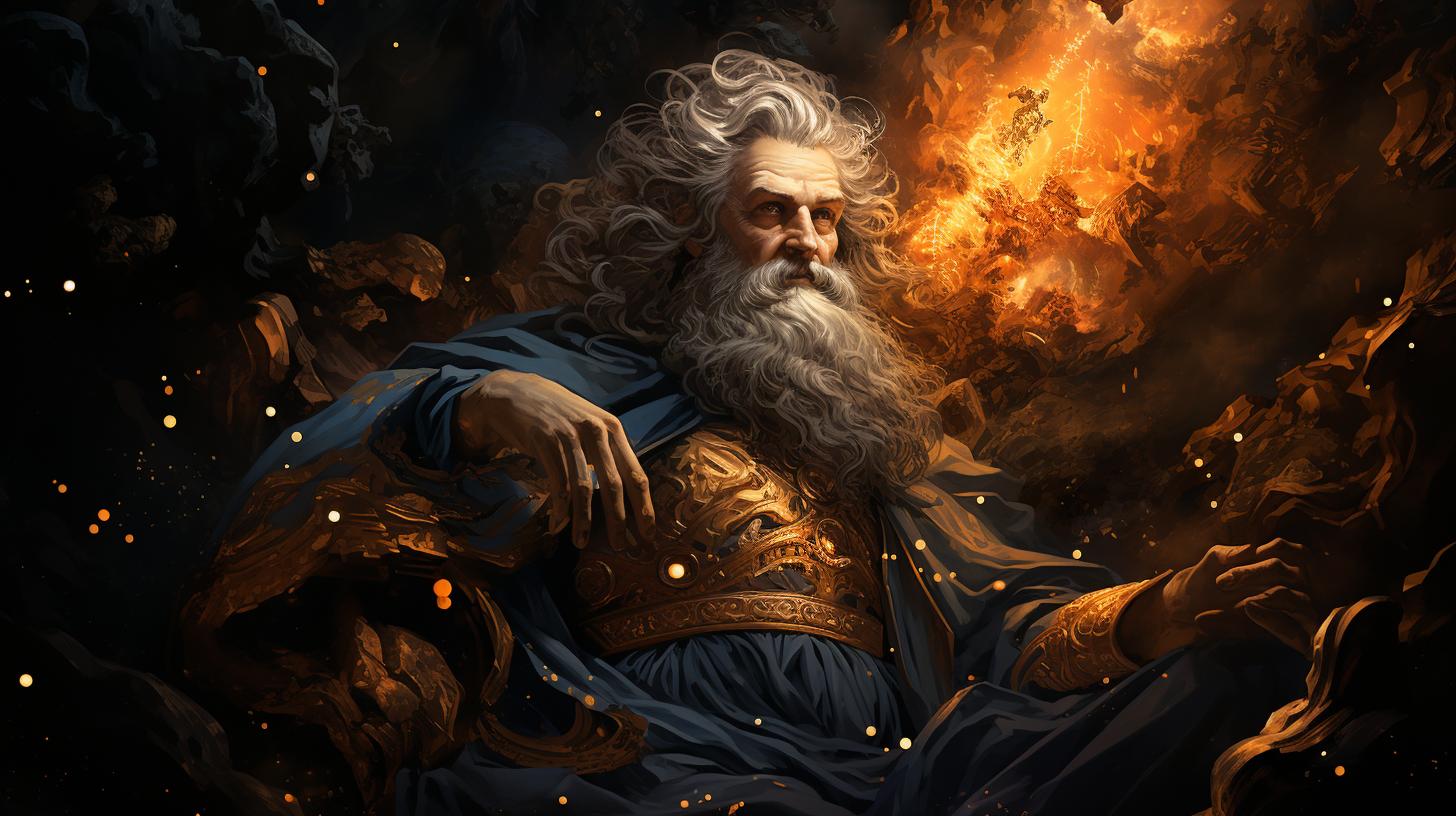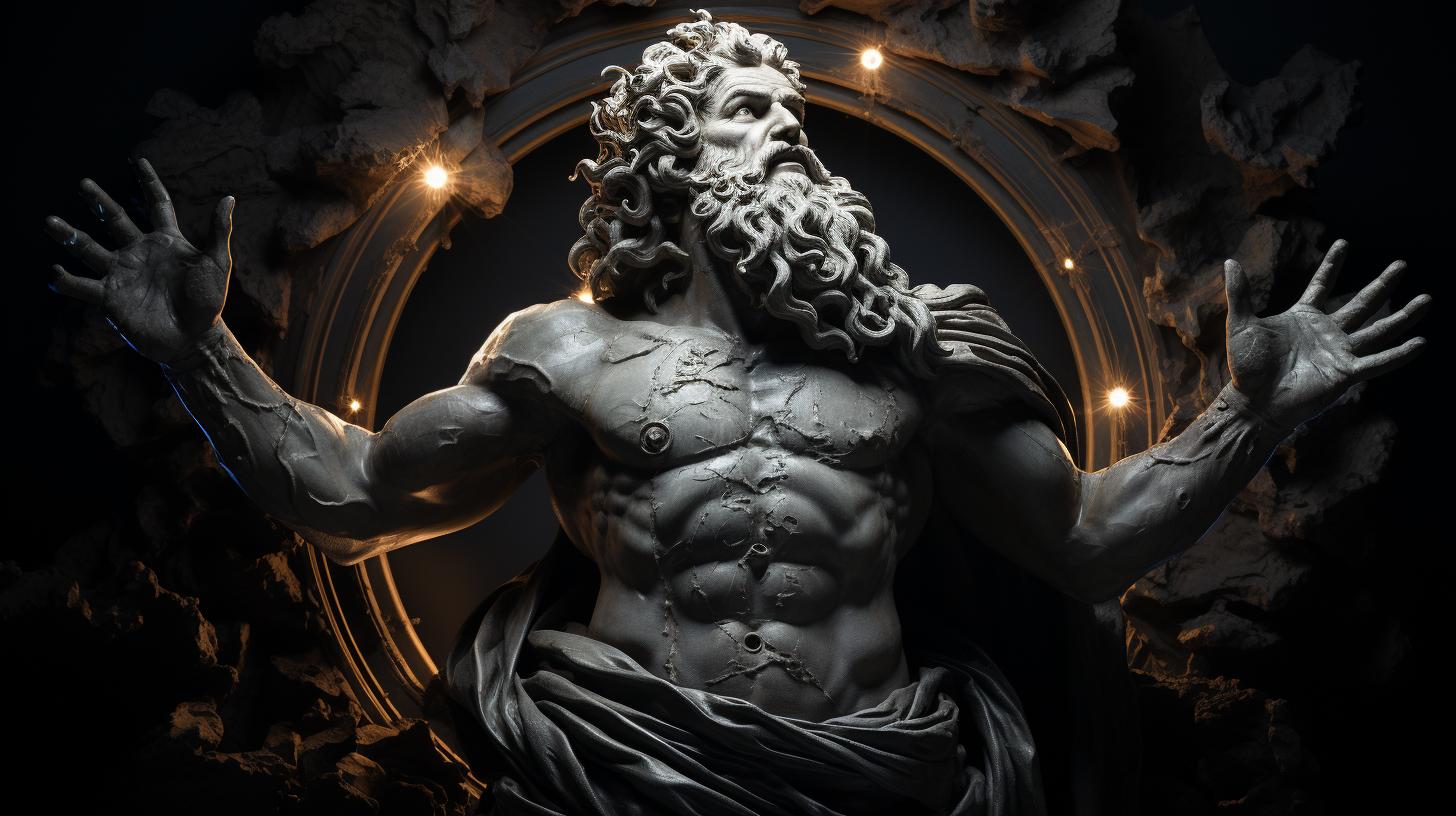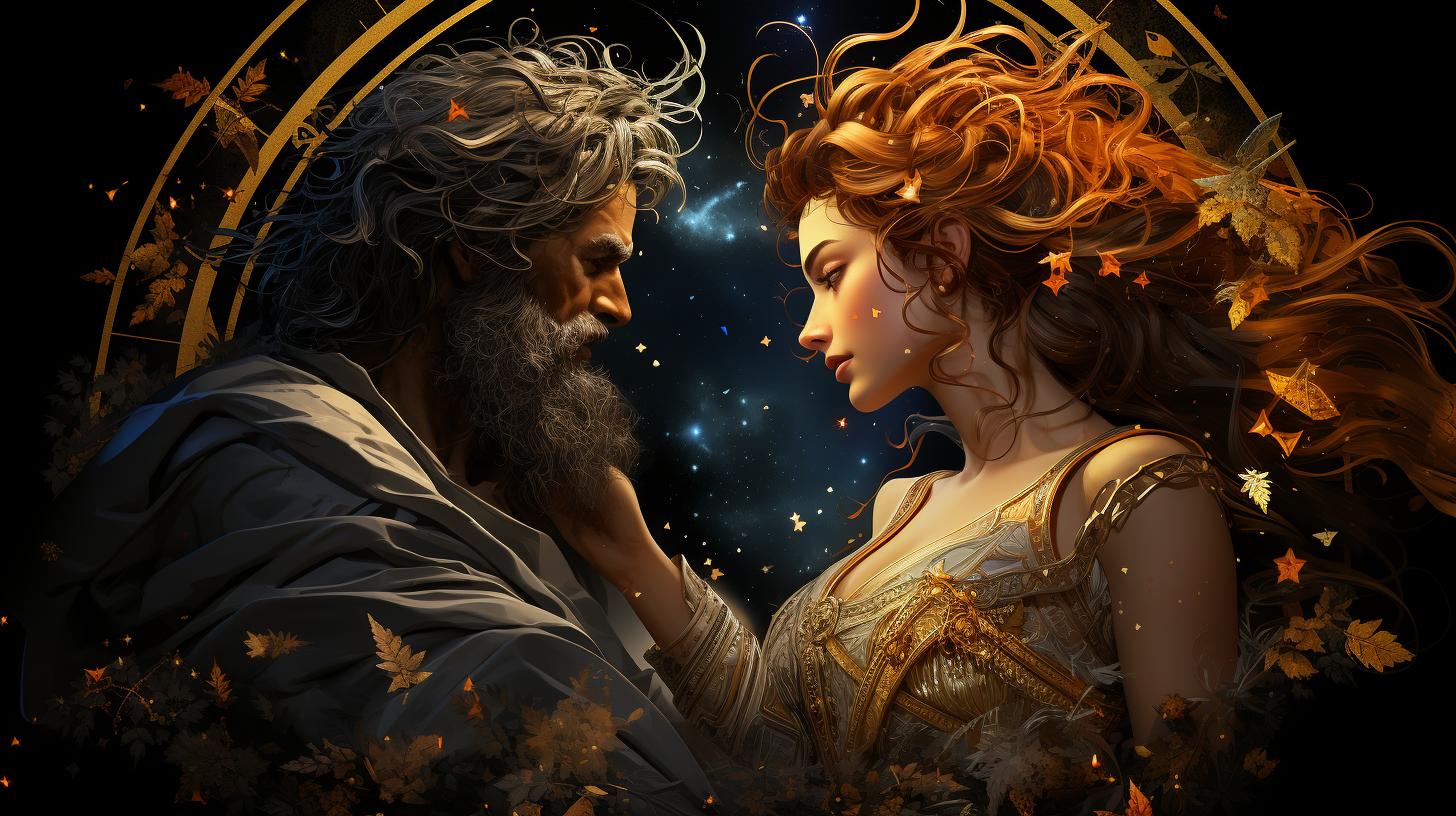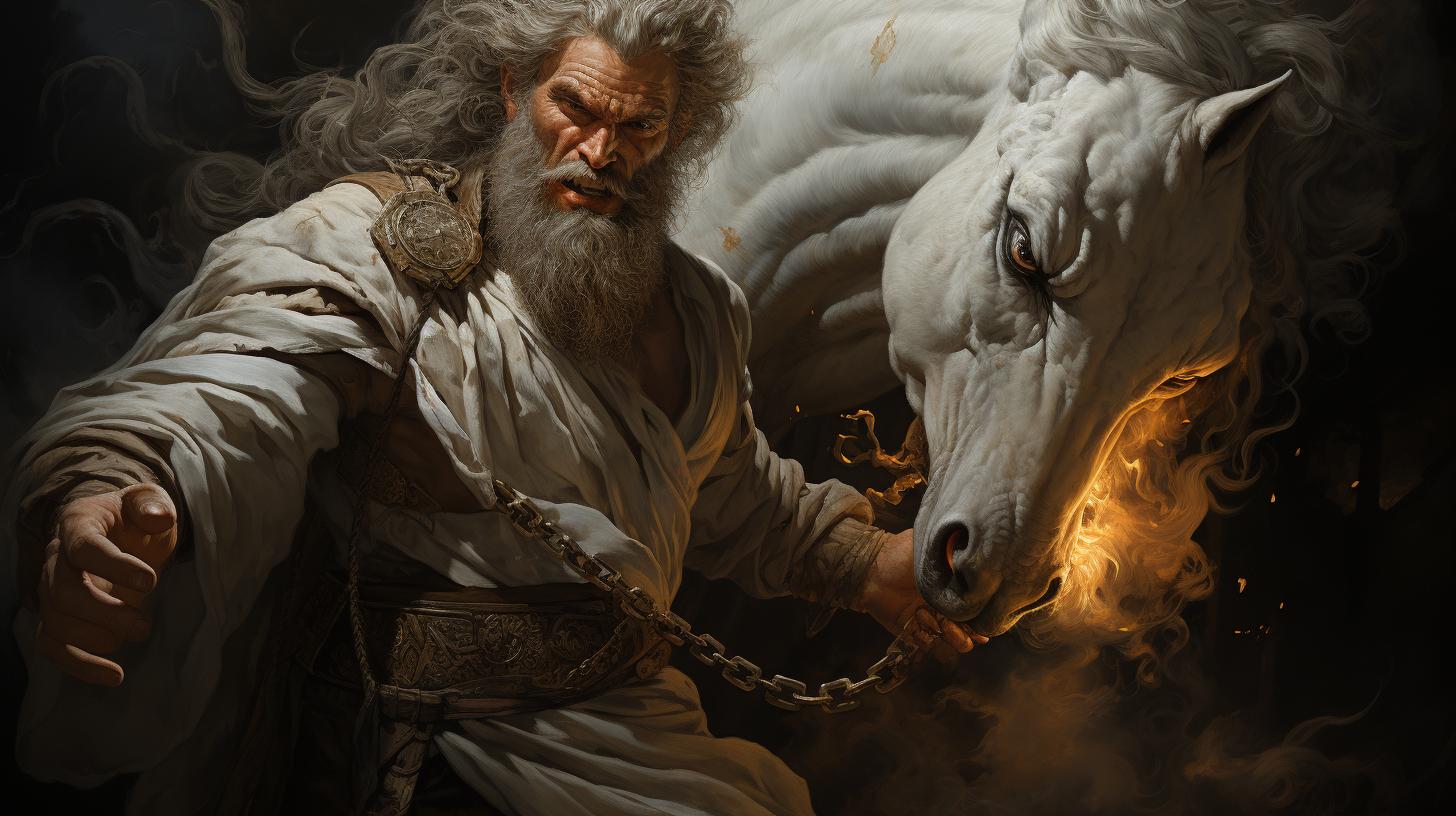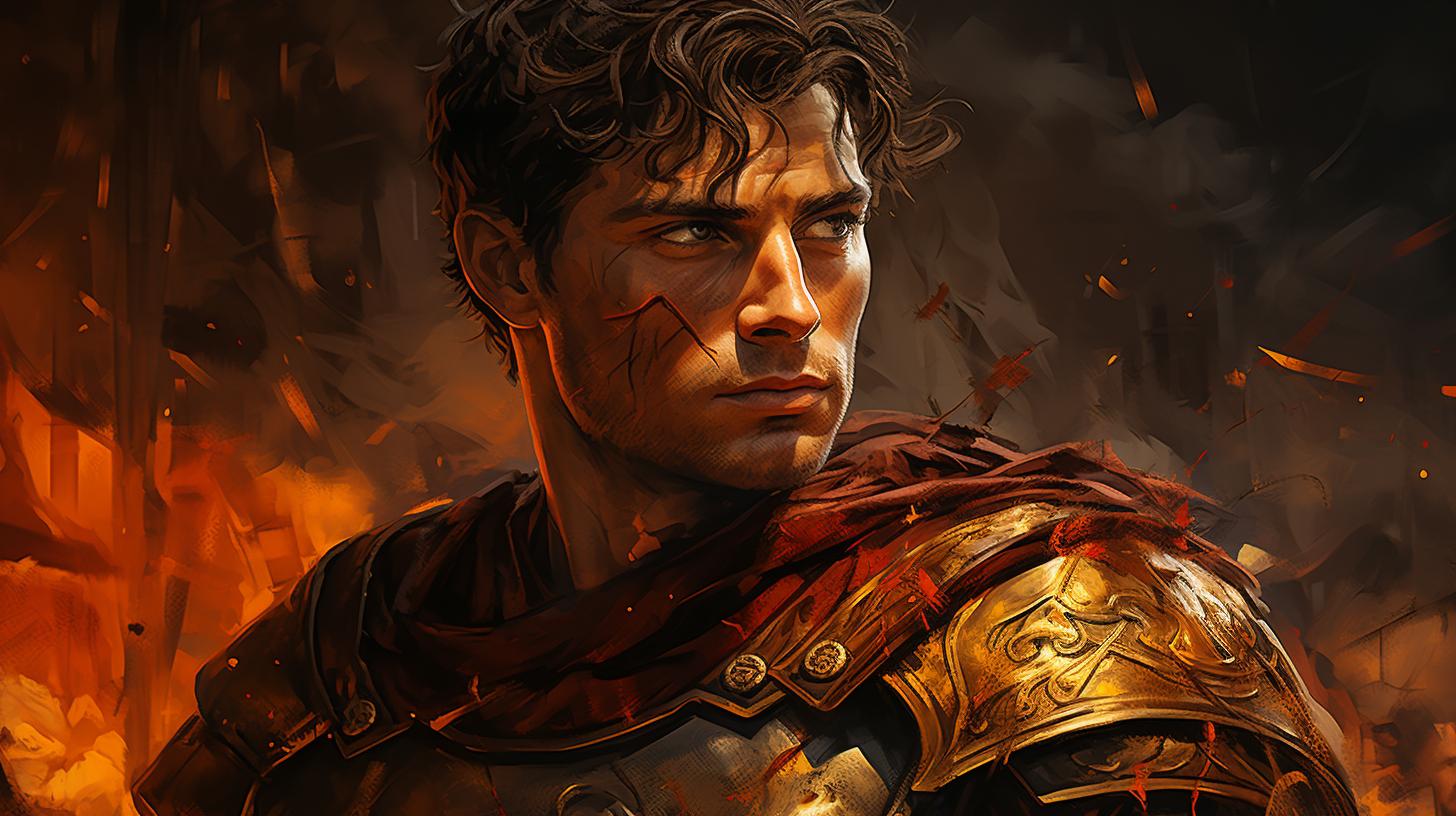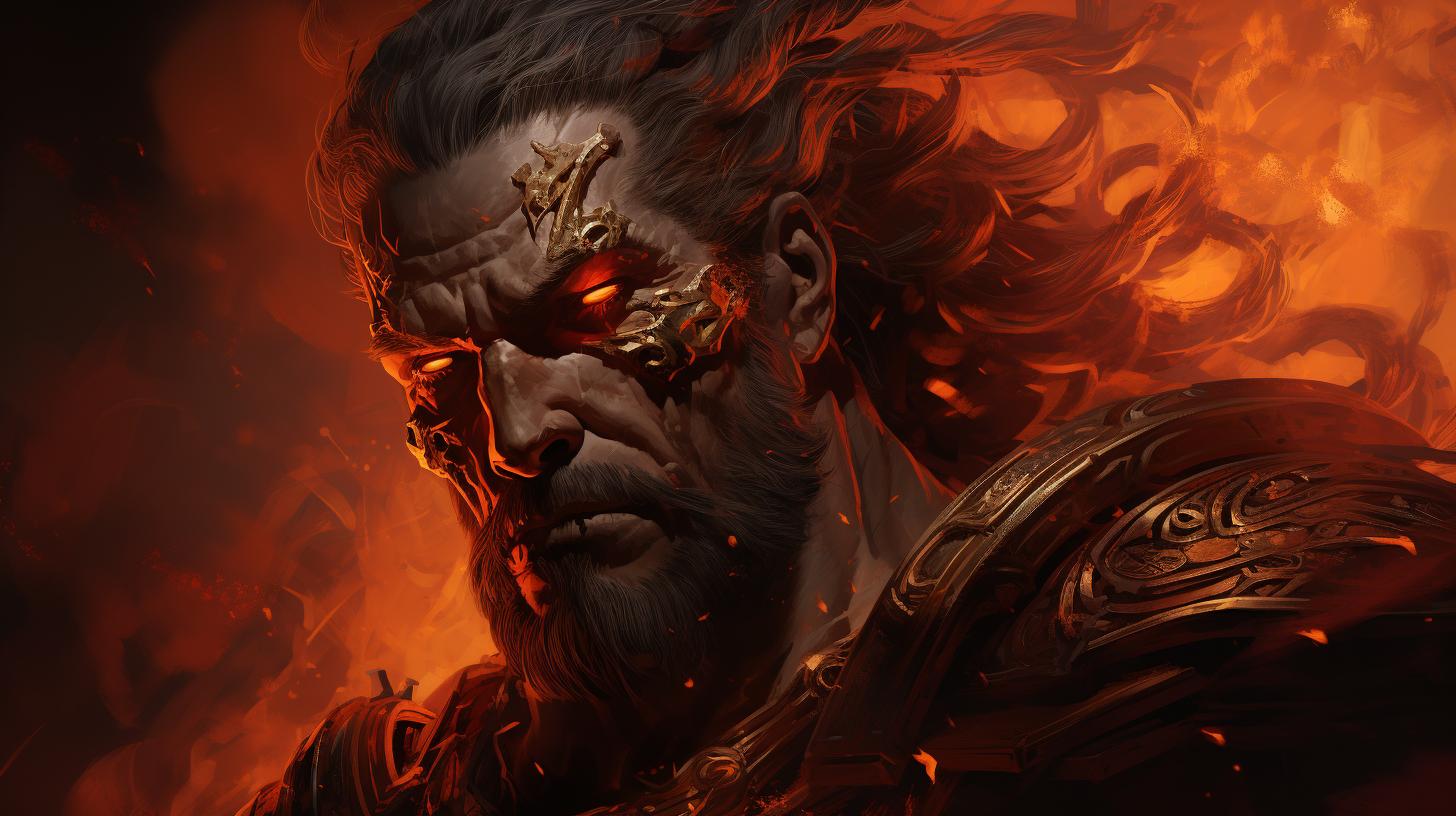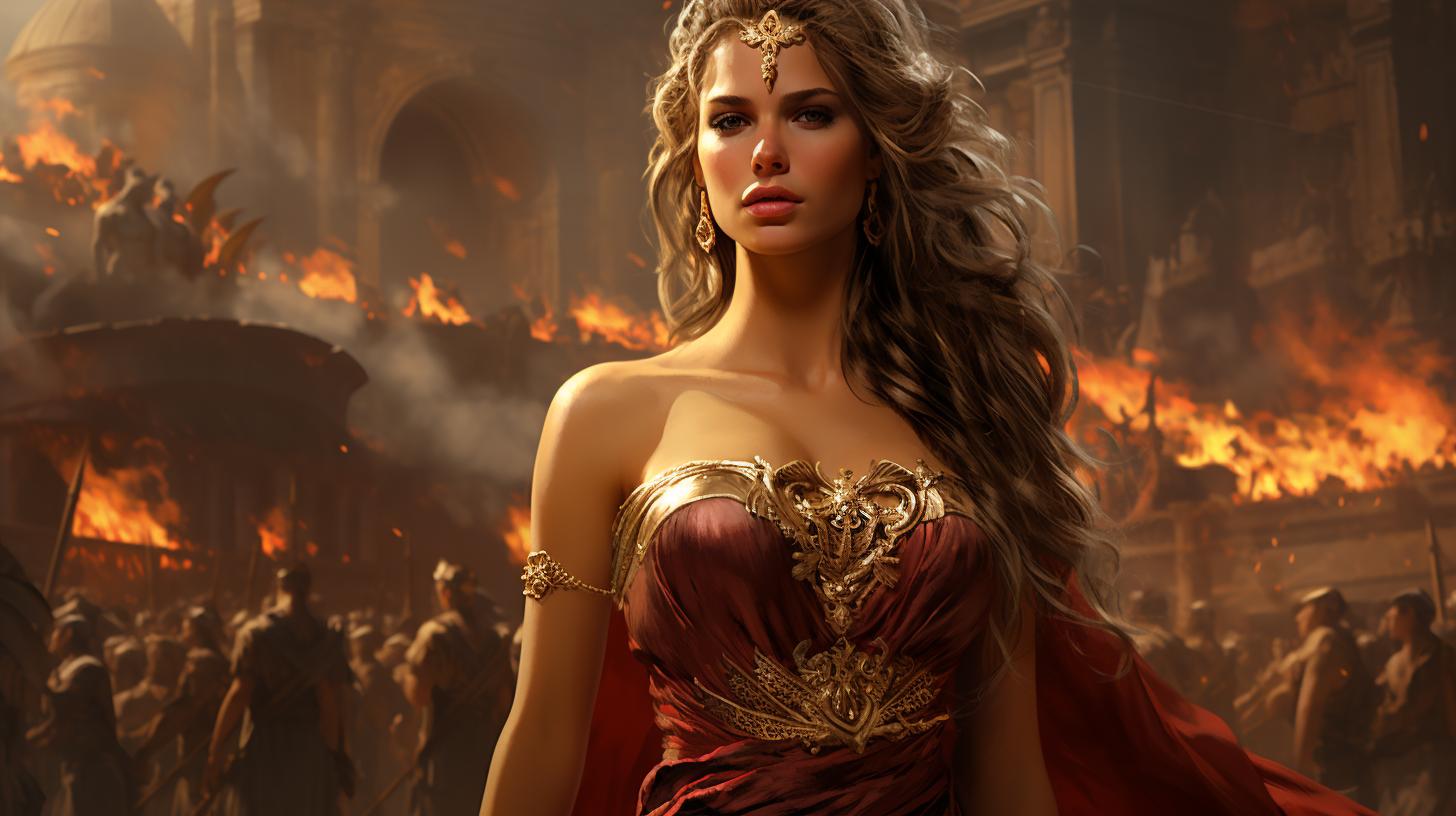Unveiling the Enigma: Crius in Greek Mythology
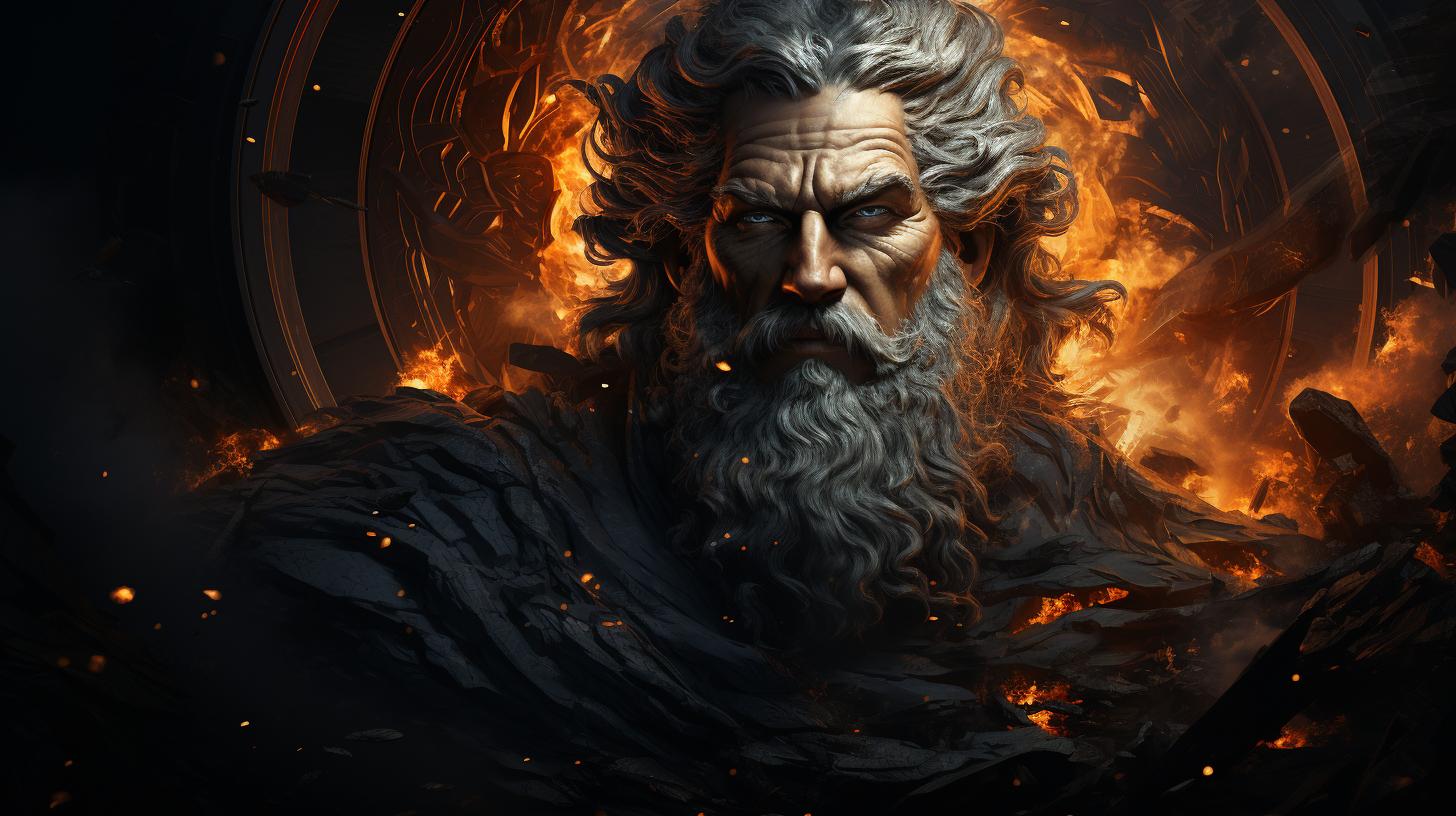
Crius, also known as Krios, is a significant figure in Greek mythology. He was one of Zeus’ Titan assistants, involved in the plot against his father Uranus. Along with his brothers, Crius played a crucial role in the downfall of the Titans and the rise of the Olympians.
Representing the southern sky, Crius was associated with strength and masculinity. After their defeat in the Titanomachy, Crius and his siblings were condemned to Tartarus, the dark underworld. Despite being less well-known, Crius has made appearances in modern adaptations, including TV shows and books.
The Mythical Titans: Exploring Greek Mythology’s Crius
The Titans: An Introduction
In Greek mythology, the Titans were powerful deities who ruled during the Golden Age. They were the children of Uranus (Sky) and Gaia (Earth) and were known for their immense strength and immense authority.
The Titans, including Crius, played a crucial role in shaping the cosmos and laying the foundation for the Olympian gods.
Crius in Greek Mythology: Origins and Family
Crius, also known as Krios, was one of the prominent Titans and an important figure in Greek mythology. He was the son of Uranus and Gaia and was known for his association with the southern sky.
The name “Crius” means “Ram,” symbolizing his connection to strength and masculinity. Crius was married to Eurybia, the daughter of the sea, and together they had several notable descendants.
The Titanomachy: War between Titans and Olympians
The Titanomachy, also known as the War of the Titans, was a cataclysmic conflict that unfolded between the Titans and the Olympian gods led by Zeus. Crius, like his fellow Titans, engaged in this fierce battle to maintain their dominion.
However, the Titans were ultimately defeated, resulting in the rise of the Olympians and the establishment of Zeus as the supreme ruler.
Crius and His Role in Greek Mythology
Crius, one of the powerful Titans in Greek mythology, played a significant role in the stories and events that shaped the ancient world. This section explores Crius’ involvement in various aspects of Greek mythology, including his representation as a pillar, his participation in the castration of Uranus, and the consequences he faced following the Titanomachy.
Crius as a Pillar: Representing the Southern Sky
In the cosmogonic tradition, the Titans symbolize the cosmic pillars that separate the heavens and the earth. Crius, specifically associated with the southern sky, symbolized a vital connection between the celestial realm and the mortal world.
His name itself, meaning ‘Ram’, reflects the strength and steadfastness often attributed to him. As the southern pillar, Crius held a crucial position in maintaining the harmony and balance of the cosmos.
The Castration of Uranus: Crius’ Involvement
Crius, along with his siblings, orchestrated a plot against their father Uranus, the sky god. When Uranus descended to unite with Gaia, the earth goddess, Crius and his brothers ambushed him.
Positioned at the four corners of the world, they seized Uranus while Cronus, hidden in the center, castrated him, forever changing the course of Greek mythology. Crius’ active participation in this act of rebellion showcases his determination and loyalty to the cause.
Consequences of the Titanomachy: Crius’ Imprisonment in Tartarus
The Titanomachy, the violent war between the Titans and the Olympian gods, resulted in the defeat of Crius and his kin. As punishment for their rebellion, they were banished to the depths of Tartarus, a dark abyss beneath the foundations of the cosmos.
Previously the upholders of the heavens, the Titans now carried the weight of the entire universe. Crius, alongside his fellow Titans, endured an eternal imprisonment, serving as a reminder of the consequences that befall those who challenge the Olympian rule.
- Representation as a crucial pillar connecting the celestial and mortal realms.
- Active involvement in the castration of Uranus, marking a pivotal moment in Greek mythology.
- Imprisonment in Tartarus as a consequence of the failed Titanomachy.
By exploring Crius’ role in Greek mythology, we gain insights into the intricate relationships and power dynamics that defined the ancient Greek pantheon.
In the following section, we delve deeper into Crius’ family and descendants, unraveling their distinctive contributions and stories within the mythological tapestry.
Crius’ Family and Descendants
Within the realm of Greek mythology, Crius had a familial lineage that encompassed both divine and earthly connections. His family played significant roles in various aspects of the mythological world.
Eurybia: Crius’ Wife, Daughter of the Sea
Eurybia, daughter of the sea, became Crius’ wife and bore him several children. As a sea goddess, Eurybia added an element of power and authority to the family lineage. Though not much is known about her specific endeavors, her presence underscores the diverse nature of Crius’ family.
Astraios: Crius’ Son, the God of Stars
Astraios, the son of Crius, held a prominent position in Greek mythology as the god of stars. Being associated with celestial bodies such as stars and constellations, Astraios embodied the ethereal realm.
His existence exemplified the far-reaching influence of Crius’ lineage beyond the earthly realm.
Pallas and Perses: Crius’ Other Warrior Sons
In addition to Astraios, Crius had two other sons, Pallas and Perses, who were known for their warrior-like qualities. Pallas and Perses contributed to the grandeur of Crius’ family legacy, embodying strength and combativeness, much like their father.
These warrior sons added a fierce dimension to the lineage of Crius.
Through his wife Eurybia, Crius formed a connection with the sea, while his sons Astraios, Pallas, and Perses symbolized the celestial and martial aspects.
Crius’ family and descendants expanded beyond the confines of earth, embodying diverse realms and attributes inherent to the Greek mythological pantheon.
Crius in Popular Culture and Modern Adaptations
Crius in TV and Film: Xena: Warrior Princess
Crius, the mighty Titan from Greek mythology, has left his mark on popular culture through various television and film adaptations. One notable appearance is in the hit show Xena: Warrior Princess, where Crius plays a significant role in the recurring storyline.
In Xena: Warrior Princess, Crius is portrayed as a formidable adversary to the show’s titular heroine. His immense strength and relentless determination make him a worthy opponent for Xena as she battles the forces of darkness.
The character of Crius in Xena: Warrior Princess embodies the mythological symbolism associated with the Titan. As one of the major antagonists of the series, Crius personifies the struggle between the Titans and the Olympians, showcasing the ongoing conflict between ancient deities.
Xena’s encounters with Crius serve to highlight the resilience and resourcefulness of the show’s protagonist, as she faces formidable challenges in her quest for redemption and justice. The portrayal of Crius adds an extra layer of mythology and depth to the exciting adventures of Xena and her companions.
Crius in Literature: Rick Riordan’s The Last Olympian
In the world of literature, Crius makes a captivating appearance in Rick Riordan’s best-selling novel, The Last Olympian. Riordan, known for his modern retellings of ancient mythologies, incorporates Crius into the epic battle between the Titans and the Olympian gods.
In The Last Olympian, Crius emerges as a powerful and cunning antagonist whose actions have far-reaching consequences for the fate of Mount Olympus and the world at large. As one of the main adversaries, Crius tests the resolve and abilities of the story’s young heroes in their fight to protect the Olympians.
Riordan’s portrayal of Crius effectively captures the essence of the Titan’s mythological persona. His depiction emphasizes Crius’ immense strength, strategic prowess, and his role in the greater conflict between ancient powers.
By featuring Crius in The Last Olympian, Riordan breathes new life into Greek mythology, captivating readers with thrilling adventures, epic battles, and thought-provoking explorations of ancient legends.
- Crius in TV and Film: Xena: Warrior Princess
- Crius in Literature: Rick Riordan’s The Last Olympian
.

